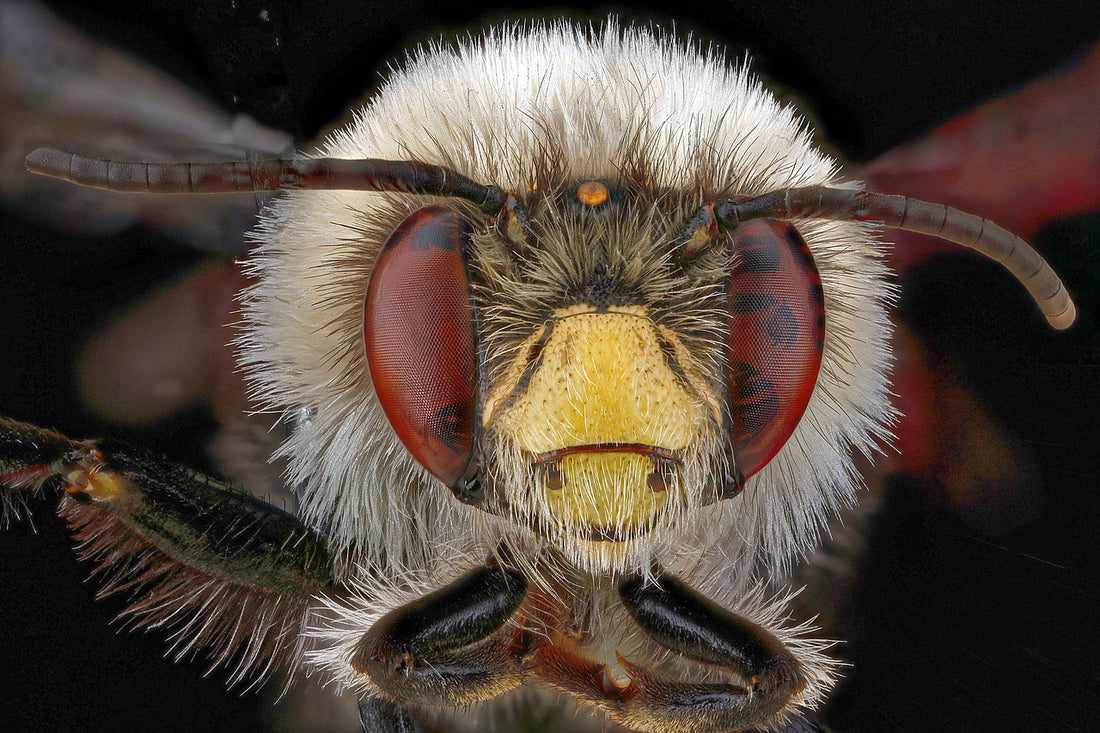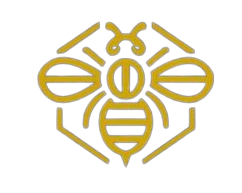
Debunking Common Myths About Bees and Beekeeping
Share
Bees are some of the most fascinating and important creatures on Earth, yet there are many misconceptions surrounding them. Whether it's about their behaviour, the practice of beekeeping, or their role in our environment, myths about bees are widespread. Unfortunately, these myths often lead to unnecessary fear or misunderstanding of these vital insects.
Today, we’re here to set the record straight by debunking some of the most common myths about bees and beekeeping. Let’s clear up the confusion and help you gain a greater appreciation for these hardworking pollinators!
Myth 1: Bees Are Aggressive and Dangerous
One of the most persistent myths about bees is that they are aggressive and will sting at the slightest provocation. While it’s true that bees will defend their hive if they feel threatened, they are generally quite docile and only sting in self-defence.
Bees are not like wasps, who are more prone to being aggressive without provocation. In fact, honeybees will die after stinging, which means they are more likely to avoid stinging unless absolutely necessary. Most of the time, if you leave bees alone and avoid swatting at them, they’ll go about their business pollinating flowers without bothering you.
Myth 2: Beekeepers Are at Constant Risk of Being Stung
Another myth is that beekeepers are constantly being stung while working with their hives. While it’s true that beekeeping involves working closely with bees, experienced beekeepers know how to handle bees gently and calmly to avoid provoking them. Wearing protective gear like veils, gloves, and suits also helps minimize the chances of stings.
Beekeepers often spend years developing a relationship with their colonies, learning their behaviour and how to work with them safely. Stings do happen occasionally, but they are not as frequent or as dangerous as some might believe.
Myth 3: Beekeeping Is Only for Experts
Many people believe that beekeeping is a complex hobby that only experts can manage. While beekeeping does require knowledge and dedication, it’s not an activity reserved for professionals. In fact, beekeeping can be a rewarding and accessible hobby for beginners if they take the time to learn and properly equip themselves.
There are plenty of resources available—books, courses, and online communities—that can help you get started with beekeeping. Starting with one or two hives is a great way to ease into it, and local beekeeping clubs or experienced beekeepers can offer guidance and support.
Myth 4: Bees Only Pollinate Flowers and Don’t Contribute to Agriculture
Many people don’t realize just how essential bees are to our food production. While it’s true that bees pollinate flowers, their role in agriculture goes far beyond just making flowers bloom. In fact, bees are responsible for pollinating about one-third of the food we eat. This includes fruits, vegetables, nuts, and even crops like coffee and cocoa.
Bees are key players in the process of pollination, which helps plants produce seeds, fruits, and vegetables. Without bees, many of our favourite foods would be much less abundant or even unavailable. So, the next time you enjoy a delicious apple or a serving of almonds, remember that bees played a vital role in making that possible!
Myth 5: Honey is the Only Product of a Beehive
While honey is the most famous product of a beehive, it’s far from the only one! Bees produce several other products that have a wide range of uses. Here are a few:
-
Beeswax: Bees use wax to build the hexagonal cells in their hives, but humans have also been using beeswax for centuries in everything from candles and cosmetics to food wraps and furniture polish.
-
Propolis: This sticky substance is produced by bees from tree resins and is used to seal cracks in the hive. Propolis has natural antimicrobial properties and is used in health supplements and remedies.
-
Royal Jelly: This highly nutritious substance is fed to queen bees, and it has gained popularity as a supplement for its potential health benefits, including boosting energy and immunity.
-
Bee Pollen: Collected by bees from flowers, bee pollen is often used as a supplement for its antioxidant and nutritional properties.
Myth 6: Bees Will Only Live in Wild, Unkempt Areas
Another myth is that bees prefer wild, untended areas to live. In reality, bees can thrive in a variety of environments, including urban and suburban areas. Beekeepers can manage hives in city backyards, on rooftops, and in small gardens. Bees are incredibly adaptable and will make homes wherever there’s access to pollen and nectar, whether it's in a forest, a field, or a city garden.
Urban beekeeping is becoming increasingly popular, as cities often have a variety of plants and flowers that bees can pollinate, and fewer pesticides are used compared to agricultural areas. In fact, some cities, like New York and London, are home to thriving beekeeping communities!
Myth 7: Bees Only Live for a Short Time
It’s often believed that bees live only for a short period, but this isn’t entirely true. Worker bees, which make up most of the colony, typically live a few weeks during the busy summer months. However, queens can live for several years, with some even reaching up to five years in optimal conditions. During their lifetime, a queen can lay thousands of eggs, ensuring the colony’s survival.
Bees are fascinating creatures with a variety of life spans depending on their role in the hive. Worker bees are short-lived because they work so hard, but their contribution to the colony is immense.
Myth 8: Beekeeping Isn’t Good for the Bees
A common misconception is that beekeeping is harmful to bees. However, responsible beekeeping practices help maintain healthy bee populations. Beekeepers monitor their hives for diseases, parasites, and other threats, ensuring the colony stays strong and productive.
In fact, beekeeping can be beneficial for bees, especially when it comes to providing them with a safe, managed environment where they are protected from the dangers of pesticides and habitat loss. By supporting local beekeepers, you’re also helping to ensure that bees have a place to thrive.
Final Thoughts: Let’s Clear Up the Buzz About Bees
Bees are some of the most remarkable creatures on Earth, and the myths surrounding them can often lead to fear or misunderstandings. Now that we've debunked some of the most common misconceptions, it's clear that bees are far from dangerous, and they play an essential role in our ecosystems and food supply.
By supporting responsible beekeeping and learning more about these incredible insects, we can all help protect bees and ensure their continued survival for generations to come. Interested in learning more or supporting local beekeepers? Check out our range of honey and bee products to experience the sweet rewards of beekeeping!






